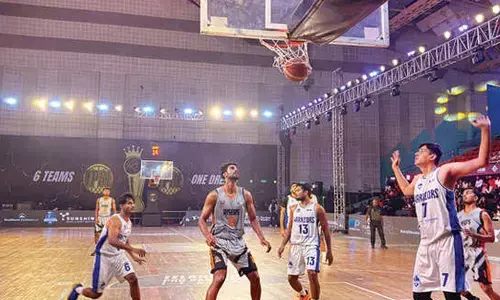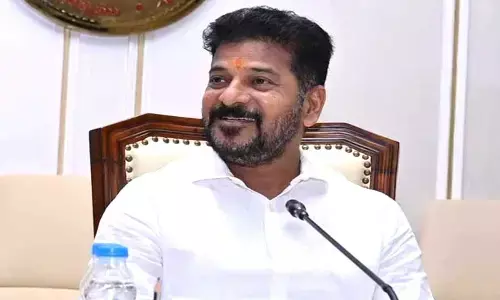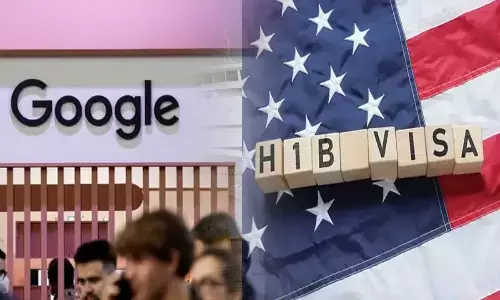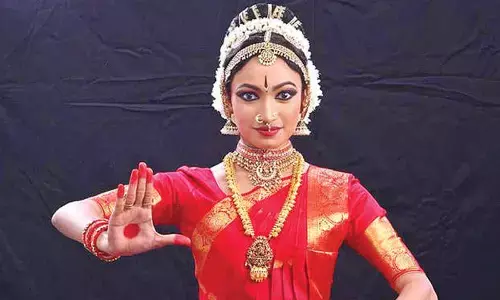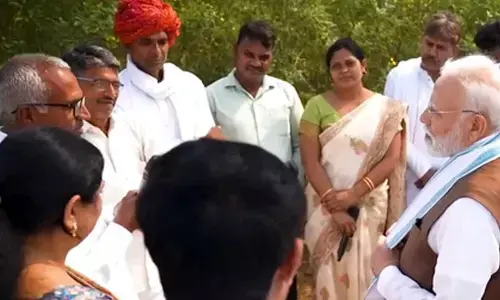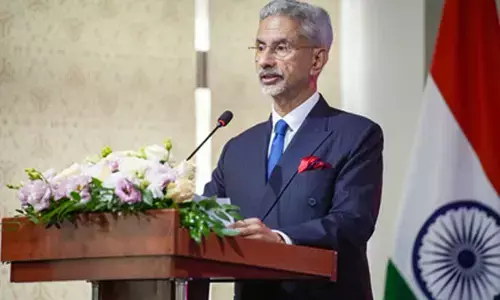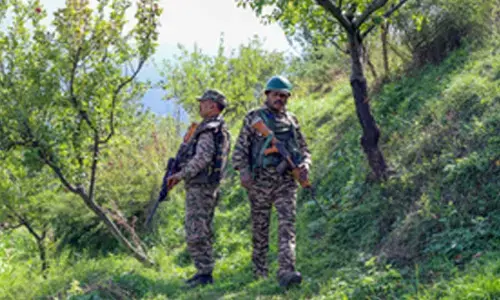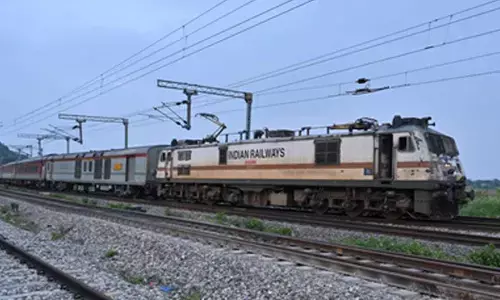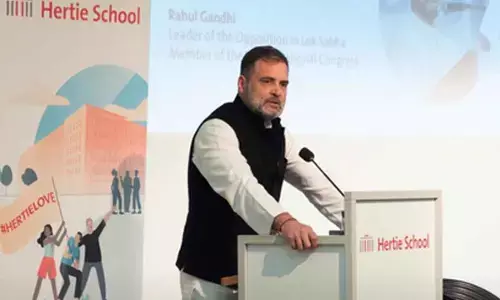Putin's visit to India full of symbolism: Arrival coincides with Soviet-backed recognition of Bangladesh
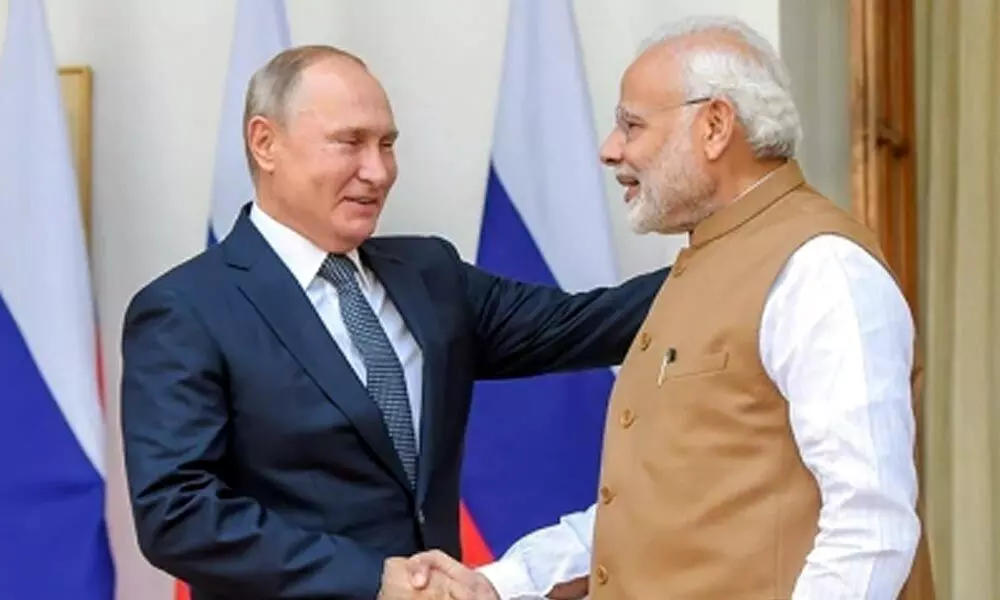
Russian President Vladimir Putin and Prime Minister Narendra Modi (Photo/IANS)
In a short while Russian President Vladimir Putin will begin talks with Prime Minister Narendra Modi.
New Delhi: In a short while Russian President Vladimir Putin will begin talks with Prime Minister Narendra Modi. The visit is being watched with particular interest on both sides, coming as it does at a particularly critical time - volatile Taliban rule in Afghanistan, worsening NATO/Ukraine – Russia relations, India-China tensions, Indias inclusion in the QUAD, and the new geopolitical move with AUKUS.
Especially significant is the fact that given its closeness to the US, India is intent on going ahead with its purchase of S 400 TRIUMF missiles, with the threat of CAATSA (though improbable) hanging over it. Turkey has faced similar sanctions from the US over its purchase of the same missile system from Russia.
During President Putin's visit the India-Russia 2+2 dialogue involving the foreign and defence ministers on both sides, which replicates the India-US 2+2 dialogue, has already begun.
The timing of the visit, however, is significant and interesting historically. Fifty years ago on 6th December 1971 India became the first country to recognise the newly liberated state of Bangladesh. This year the day is being celebrated as both India and Bangladesh jointly as "Maitri Diwas" – a decision that was taken when Prime Minister Narendra Modi visited Bangladesh earlier in March this year. Russia will also be one of the select countries where the day will be celebrated.
In this war of liberation along with India's generosity, valor and decisiveness, a pivotal role was played by the Soviet Union, of which Russia is the inheritor state. The astuteness of then Prime Minister Indira Gandhi to quickly conclude the 1971 Indo-Soviet Treaty of Peace, Friendship and Cooperation in August 1971 had a direct impact on the decisive battle in the eastern war theatre between India and Pakistan. A crucial clause that if either country was attacked, the other would consult to "remove such threat" and "take appropriate effective measures to ensure peace and the security of their countries" became a deterrent for Pakistan, its all weather friend China, and US.
As Russian Ambassador to India Nikolay Kudashev wrote in an article in August to mark the 50th anniversary of the Indo-Soviet Friendship Treaty "...the Treaty was an integral part of the range of events, which had divided the history of South Asia into before and after, - the third war between India and Pakistan, the creation of Bangladesh and the adoption of the relevant UN SC resolution strongly supported by the Soviet Union along with prevention of attempts to attack India by other powers."
Soviet military support allowed India to take on Pakistan equipped with arms from the US, Jordan, Turkey, and Iran under its Shah Mohammed Reza Pahlavi. Following the was 1971 war hero Lt. General JFR Jacob had said "The Russians helped us a lot. I always will appreciate it. I have a lot of time for the Russians."
For people of West Bengal though the sailing of the US 7th fleet led by the world's largest nuclear powered aircraft carrier USS Enterprise into the Bay of Bengal in December 1971 that remains etched in their memory. Soviet intelligence also found a British naval group also moving into India's territorial waters in the West. The Soviets responded by dispatching their nuclear armed flotilla, the 10th Operative Battle Group (Pacific Fleet) from Vladivostok.
When the UN wanted to send observers from the United Nations High Commission for Refugees to both sides of India's borders with East Pakistan, something that would have exposed the Mukti Bahini, Soviets diplomats in the UN scuttled it. After the war began, Soviet veto in the Security Council gave enough time to Indian troops to move to Dhaka and get Pakistani troops to surrender.
Consequently, the Soviet Union and now Russia have followed the Shimla Agreement of 1972, taking a position against raising the Kashmir issue in the UN Security Council, seeing territorial disputes between India and Pakistan as strictly a bilateral issue.
Later, the Indo-Soviet Friendship Treaty of 1971 became the template for the Indo-Bangladesh Friendship Treaty signed in 1972.
Today India and Russia have many differences between them, and unease which need to be settled. The Modi-Putin summit is set to breathe new life into bilateral relations. Today is also a good day to revisit history, because in a fickle world, even with the differences, India-Russia relations have reassuringly endured.
(Aditi Bhaduri is a columnist specialising in Eurasian geopolitics. Views expressed are personal and exclusive to India Narrative)








